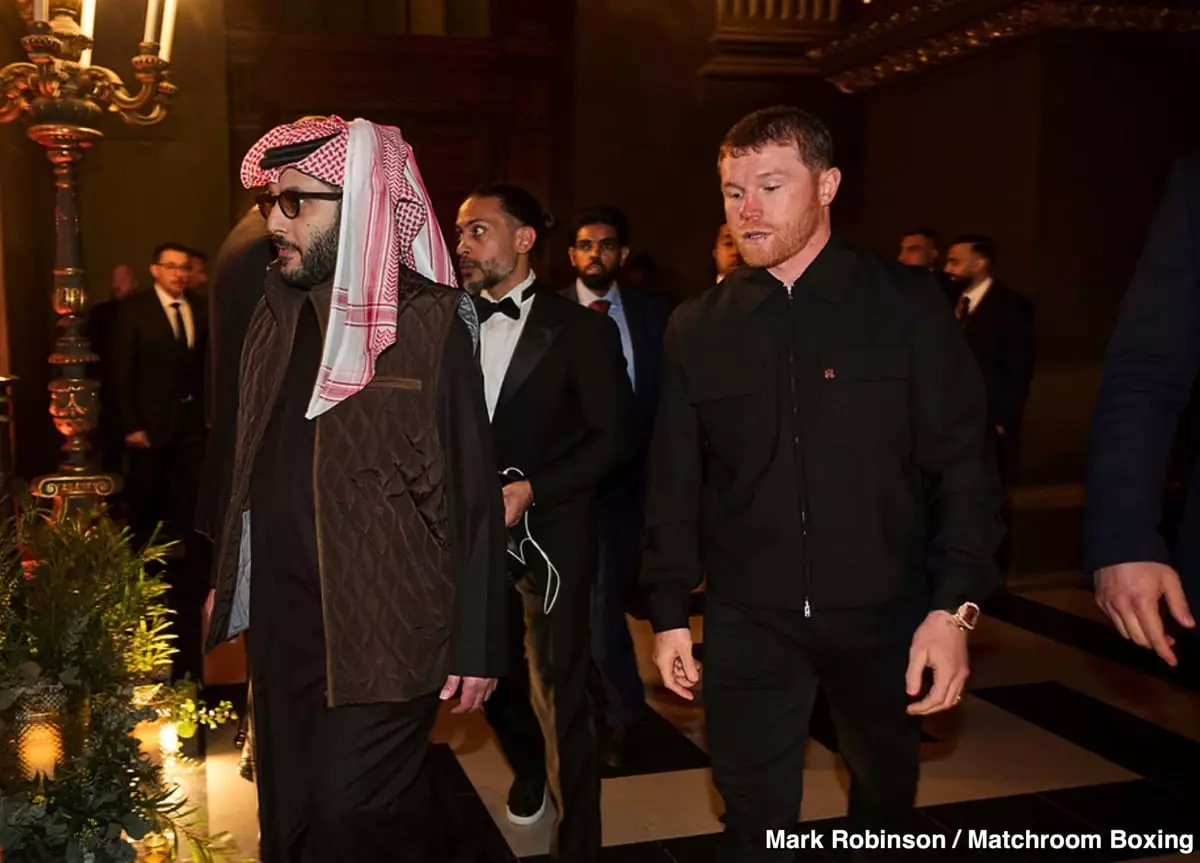Oscar De La Hoya, a prominent figure in the boxing world, has recently made headlines for his critical remarks regarding Saul “Canelo” Alvarez. The critique, delivered during the latest episode of his show “Clap Back Thursday,” focuses on Canelo’s decision to sign a lucrative four-fight contract for the Riyadh Season events, indicating that he is prioritizing financial gain over fan loyalty and genuine competitive spirit. De La Hoya’s comments reflect a growing sentiment among boxing enthusiasts that Canelo’s actions are indicative of a troubling transformation within the sport.
At the heart of De La Hoya’s commentary is the allegation that Canelo is more interested in maximizing his earnings than in catering to the wishes of his fanbase. He argued that by opting for a fight against William Scull—a lesser-known competitor—over a high-stakes bout with David Benavidez, Canelo has deliberately sidestepped a matchup that would be highly anticipated among boxing fans. According to De La Hoya, this choice reinforces the notion that the Mexican fighter is becoming synonymous with the “diva” label, prioritizing profitability above all else.
De La Hoya articulated disappointment in Canelo’s apparent shift in priorities since the 2015 split from Golden Boy Promotions. He expressed a sense of betrayal, not only for himself but also for other promoters and fans who believed in Canelo’s commitment to the boxing community. By choosing wealth through partner Turki Al-Sheikh rather than challenging the sport’s elite competitors, Canelo has ostensibly neglected the essence of boxing—a narrative steeped in competition and respect for one’s fans.
Canelo’s decision-making raises questions about accountability in boxing. De La Hoya’s assertions that Canelo “doesn’t give a f*** about anyone” highlight the potential dangers of a sport where financial incentives overshadow the athletes’ ethical obligations to entertain and provide quality competition for their fans. One must wonder if this case is indicative of a broader trend in boxing, where fighters are encouraged to pursue maximum financial security at the expense of their legacy and competitive integrity.
This commentary echoes a larger debate within boxing regarding the responsibilities of athletes and promoters. The shift towards entertainment-centric matches, akin to those seen in the realm of exhibition bouts and celebrity boxing events—such as those featuring YouTube sensations or reality TV stars—raises a critical question: Are boxers sacrificing their legacies for immediate financial rewards? How many legendary fighters have paved their paths by prioritizing the combat over commerce?
De La Hoya’s remarks also beg the inquiry into what constitutes true greatness in the sport of boxing. He recalls a time when champions were honored not merely for their financial success but for their willingness to fight the best, regardless of the implications. Iconic fighters like Julio Cesar Chavez and Mike Tyson are heralded not only for their skills but for their intense rivalries and willingness to face formidable opponents. In contrast, De La Hoya argues that the current trajectory does a disservice to boxing’s rich history, perpetuating an era he terms a “diva era,” marked by caution, evasiveness, and a lack of integrity.
Moreover, the situation is exacerbated by the emergence of social media and celebrity culture, which has led to an environment where perception often overshadows reality. As fighters curate their public personas and choose bouts that protect their images, true fans are left longing for the fierce rivalries and intense bouts that shaped previous generations. In a world increasingly dominated by image management and financial pursuits, will boxing find a way to return to its roots?
De La Hoya’s outspoken critique serves as a rallying call for both fighters and fans alike. It implores those in the boxing community to reflect on the implications of prioritizing financial gains over authentic sporting competition. It also invites boxing enthusiasts to hold fighters accountable for their choices, emphasizing the role of the audience in driving the narrative of the sport. The question remains: Will Canelo Alvarez rise to the occasion and reclaim his status as a champion who fights for the fans, or will he further cement the diva image that De La Hoya and many others challenge? In the end, the integrity of boxing hinges upon the choices made by its foremost athletes and the steadfast support of its devoted fans.

